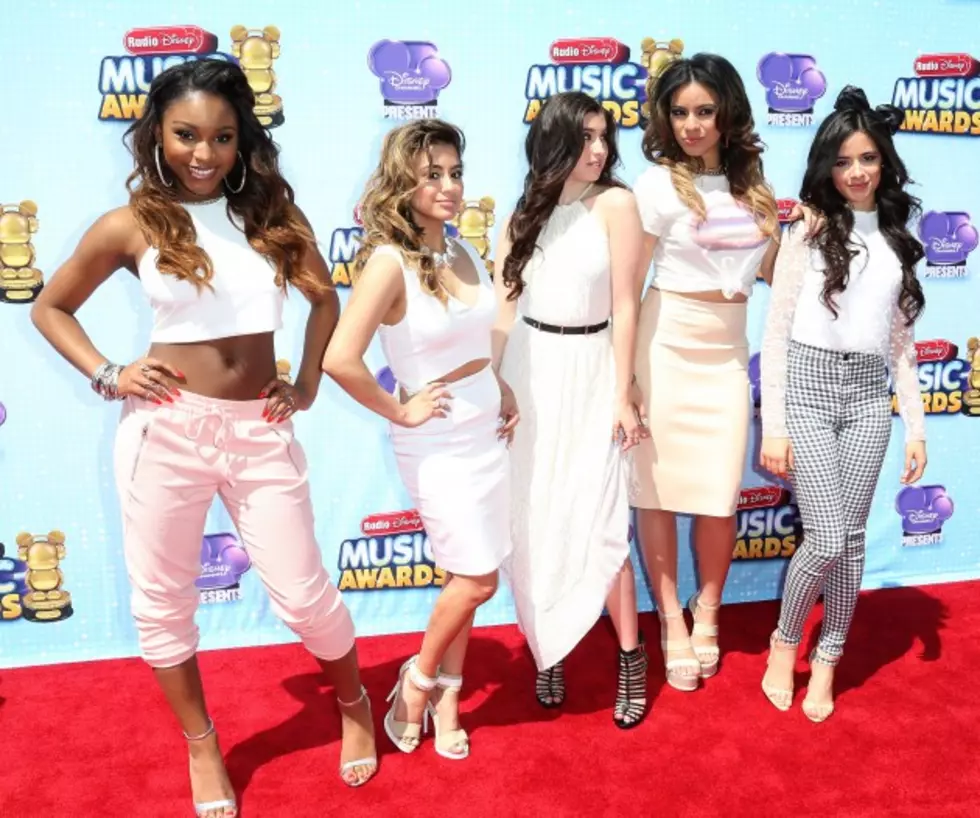
Are Record Companies Racist?
Last night, I was on the phone with a friend while driving and One Direction's "Drag Me Down" came on the radio. My daughter asked me to turn it up, and she belted every word. This sparked a conversation that I often have when others ride with us, "What are you listening to?"
I'm one of those parents that takes the advice of "Parental Discretion is advised." There are certain television shows and movies that I don't allow my child to watch and certain songs I don't allow her to listen to. Even some songs deemed "clean enough for radio" don't make it to my child's ears. Here's why:
Though the content contains no curse words and may be "politically correct," children today have a better grasp of understanding concepts, "reading between the lines," and using deductive reasoning. A song may never say, "We only had a sexual relationship," but the fact that it uses terms like "baby mama" is indicative of the fact that there is no structurally sound family unit. Here's the irony in this: Though this is our reality, I don't want her to normalize a single-parent household! I want her to continue to ask me for a dad, understanding that households are supposed to have a mother and a father who love each other as well as their children.
This morning, a friend and I were talking, and I told him that I remember growing up, I LOVED groups like The Boys, Another Bad Creation, Immature and Perfect Gentlemen. They were all my age or within a few years of my age, and they sang lyrics to which I could relate. Even groups like Hi Five and Troop were cool because we didn't quite see them as adults, as singing about coming home from school made them seem to be within the same generation. It felt like we grew up together, not like I had to grow up to relate to them.
Now days, children who aren't even old enough to drive sing about their cars, vacations, and designer clothing, how much money they have, who isn't on their level, etc. It's like the music industry is forcing the urban market to grow up faster and relate to adult ideals sooner than it should. I want to know why!
I identify with the plight of my ancestors just as much as any other Black person. I am not many generations removed from my family's first high school graduate. It bothers me that when I discuss the double standard in music and entertainment with other Black people, I'm often told that I have to understand that times are changing and that the music industry is adapting to our culture. While I do believe that "the struggle" was a way of life for many in urban areas, I refuse to believe that no other Black person can relate to regular "feel good" music. Why is most of our music that is supposedly marketed to our children geared toward our finances or our sexuality? Of course I let her listen to the songs that are dance-oriented such as "Watch Me" by Silento, but I don't think such artists/songs should be the only ones she knows from people that look like her.
In "Eyes Wide Open," Sabrina Carpenter sings about advice she received from her grandfather about staying alert and paying attention to her surroundings. You mean to tell me that none of us carry lessons we've learned from our grandparents, parents, teachers, etc.? Why can't a teen group remake “Tracks of My Tears,” or “Treat Her Like a Lady” using samples but making the songs more up to date, production-wise? Or why aren't songs selected for a project written to describe real-life experiences other than "the struggle?" Personally, I don’t identify with watching my mother sleep with different men to make ends meet. I didn’t watch guys on the block hustling up the rent money. These are not Black experiences. They’re experiences of the ghetto, which is more a mindset than an actual location. I can’t help but think that I’m not the only person who didn’t grow up in the streets. Yet, the music of our generation would cause one to think that if you’re Black, this was your reality. Do I listen to some of the music and bob my head to it? Absolutely, as long as my child isn’t with me. I stand in pride of those who were able to overcome those obstacles. But I don’t want my child to normalize these experiences.
My friend last night said that record companies are only pushing what sells and that parents of performers agree for their children to endorse these mentalities for the sake of a check. It’s a sad reality to face, but we complain about the state of our communities all the while promoting our children to take part in the very activities that are killing us. So, call me a sellout or whatever, but I refuse to sell my child’s innocence for the sake of fitting in. No, I won’t allow my child to listen to music that glorifies anything other than the ideals about which I agree. I don’t use foul language around her, and if I know there’s an environment where that’s what she’s going to hear, I steer clear of it. I’ve heard far too many adults say, “Well, they’re going to hear it at some time” and “They already hear everything on the radio.” To me, that is indicative of a parent who has no discretion about that to which they expose their own children. And if my child came home and said, "Mommy, today at school 'John' said a bad word," I AM that one that will call the teacher, not pass it off as something that just happens.
I’m not in any way saying that I am the perfect parent, but I do think more parents should take a stance for that which is acceptable or unacceptable for their children and future generations. Until we do, we can’t complain about the state of our community or our lack of economic power when we accept the first bills thrown our way in exchange of our dignity, morals, and power.


